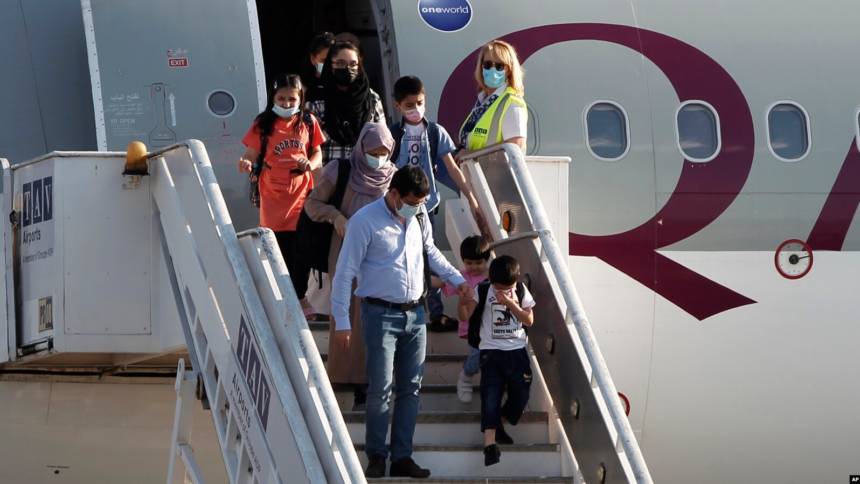RASC News Agency: In a move that has sparked deep concern among humanitarian organizations and refugee advocates, the United States has officially rescinded the Temporary Protected Status (TPS) designation for thousands of Afghanistani nationals residing on American soil. Tricia McLoughlin, Assistant Secretary for Public Affairs at the Department of Homeland Security (DHS), confirmed on Tuesday that the decision was reached following a formal review by the Secretary of Homeland Security. The determination, made in consultation with the Department of State and other relevant agencies, concluded that Afghanistan no longer satisfies the statutory requirements necessary for TPS designation.
This decision places more than 14,000 Afghanistani refugees at immediate risk of deportation. McLoughlin stated that an interagency assessment led by the U.S. Citizenship and Immigration Services (USCIS) in collaboration with other federal bodies found that current conditions in Afghanistan no longer warrant the continuation of temporary protected status. TPS is a humanitarian provision extended to nationals of countries afflicted by armed conflict, natural disasters, or extraordinary conditions that make safe return untenable. It provides deportation relief and work authorization, typically for periods ranging from 6 to 18 months, and is subject to renewal based on updated assessments.
According to McLoughlin, the formal revocation was issued on March 21, 2025. A public notice outlining implementation details and legal procedures for affected individuals will soon be released by USCIS. This policy reversal aligns with the broader anti-immigration agenda of President Donald Trump’s administration, which has undertaken a sweeping crackdown on asylum seekers, refugees, and undocumented immigrants under a renewed nationalist doctrine. Simultaneously, advocacy groups representing Afghanistani refugees have reported that several individuals who entered the United States on humanitarian parole have already received removal notices, instructing them to leave the country by the end of May.
The Department of Homeland Security has yet to clarify the destination to which these individuals will be deported, raising grave questions about potential coordination with the Taliban regime an internationally isolated authority accused of widespread human rights violations, systemic gender apartheid, and persecution of former U.S. allies, civil activists, and ethnic minorities. The development follows recent reports of forced deportations carried out by Germany, which returned several Afghanistani asylum seekers to Kabul via chartered flights. The looming possibility of U.S. collaboration with the Taliban for deportation operations has provoked widespread concern about the ethical and legal implications of legitimizing a regime branded by many as a pariah state.
For thousands of vulnerable Afghanistani nationals who had sought refuge in the United States with the hope of rebuilding their lives, this decision marks a devastating regression abandoning them to the terrifying prospect of return to a country where persecution, repression, and extremist violence remain daily realities.






